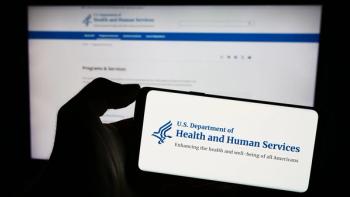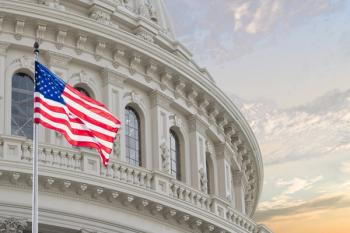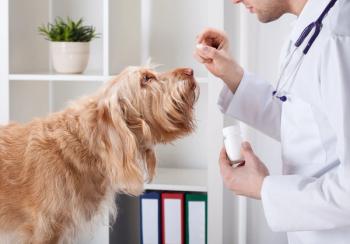
Plum Island at Congress' mercy
Government to decide fate of multi-million dollar, heavily-manpowered-federal agencies
Veterinarians and agriculture groups remain cautious about the president'sproposal to fold the U.S. Department of Agriculture's Animal and Plant HealthInspection Service and Plum Island into the Department of Homeland Security(DHS).
The proposal, which would create DHS, would reshape initiatives of selectagencies under USDA and other federal entities. The overriding goal of APHISand Plum Island would be to prevent terrorism against agriculture, accordingto a White House spokesperson.
"The concern is that an entity such as APHIS that performs admirablyserves its many customers extremely well may be broken up into functionalareas to the point that they lose their identity and the services couldget lost," says Dr. Dale Boyle, executive vice president of the NationalAssociation of Federal Veterinarians. "Will the secretary for DHS beattuned to the complex requirements of agriculture?"
On a positive note, says Boyle, meetings with the White House seem toindicate the intent is to keep APHIS together and move it en masse. Theissue is whether programs such as animal welfare and predator control willbe overlooked.
"Big" brother
The plan, if approved, would be the largest restructuring of the governmentin 50 years, culminating in a 170,000-employee Cabinet agency with a $37billion budget.
DHS would be divided into four units: border and transportation security;emergency preparedness and response; chemical, biological, radiologicaland nuclear countermeasures; and information analysis and infrastructureprotection. APHIS would fall under border security; Plum Island under chemical,biological, radiological and nuclear countermeasures.
APHIS currently operates with 8,700 employees; Plum Island manages 124people with a $25 million budget. Both could stand to gain additional funding,according to federal sources.
The department's arrival awaits Congress' approval, expected by yearend.
In their opinions
The role of APHIS far exceeds any homeland security initiative, saysDr. Pat Halbur, Ph.D., associate professor, Department of Veterinary ClinicalSciences at Iowa State University (ISU), and president-elect of the IowaVeterinary Medical Association.
"APHIS does so much more than just monitor for introduction of foreignanimal diseases. Our concern is if it would be transferred to homeland security,we would lose some emphasis on the common, major problems facing our industry,"he says.
Halbur, who works in ISU's veterinary diagnostic laboratory, dependsheavily on APHIS for complicated cases.
"It will have an immediate impact on practitioners if we lose someof our focus in those areas, because the practicing veterinarians typicallysubmit things to state diagnostic labs which rely on the National VeterinaryServices Laboratory and National Animal Disease Center."
In general, though, practitioners have little to worry about, says Boyle,who views the transfer as a zero sum - no gains, no losses.
"However, veterinarians are especially well suited to be resourcesin this whole fight against disease. The market for people who understandbiological and chemical warfare and its effects on animals, in my mind,would demand an increase for more knowledgeable people," he notes.
"The main goal should be a government that works well together ina coordinated and cohesive manner that makes sense to the taxpayer thishas not always been the case in the past," says Boyle.
Dr. Alfonso Torres, currently director of the New York State Animal HealthDiagnostic Laboratory at Cornell University, views APHIS' contributionsto the well-being of society in general as "well demonstrated"in its ability to keep serious animal diseases and plant pests from enteringthe country.
"To that extent, the consideration of all APHIS to be part of thenew DHS is a welcome recognition of their important duties," says Torres,also former deputy administrator of APHIS, Veterinary Services. However,he hopes the government will not overlook APHIS' other functions that arenot entirely related to exclusion of animal and plant diseases from enteringthe U.S.
ARS, according to Sandy Miller Hays, director of communications, is tightlippedabout plans for Plum Island.
"We don't have any more information than what we read in the newspapers,"she says.
The AVMA Governmental Relations Division and a spokesperson for APHISdid not return calls seeking comment.
Ignored in shuffle
The Humane Society of the United States says it is worried that one ofAPHIS' primary missions, ensuring the humane care and treatment of animals,may be overlooked during relocation.
APHIS oversees enforcement of the Animal Welfare Act, a federal law mandatingresponsible care for animals used in commercial enterprises - zoos, puppymills, airlines and animal research facilities. HSUS, as a result, is askingCongress to keep animal welfare under the USDA umbrella and not under DHS.
Newsletter
From exam room tips to practice management insights, get trusted veterinary news delivered straight to your inbox—subscribe to dvm360.




